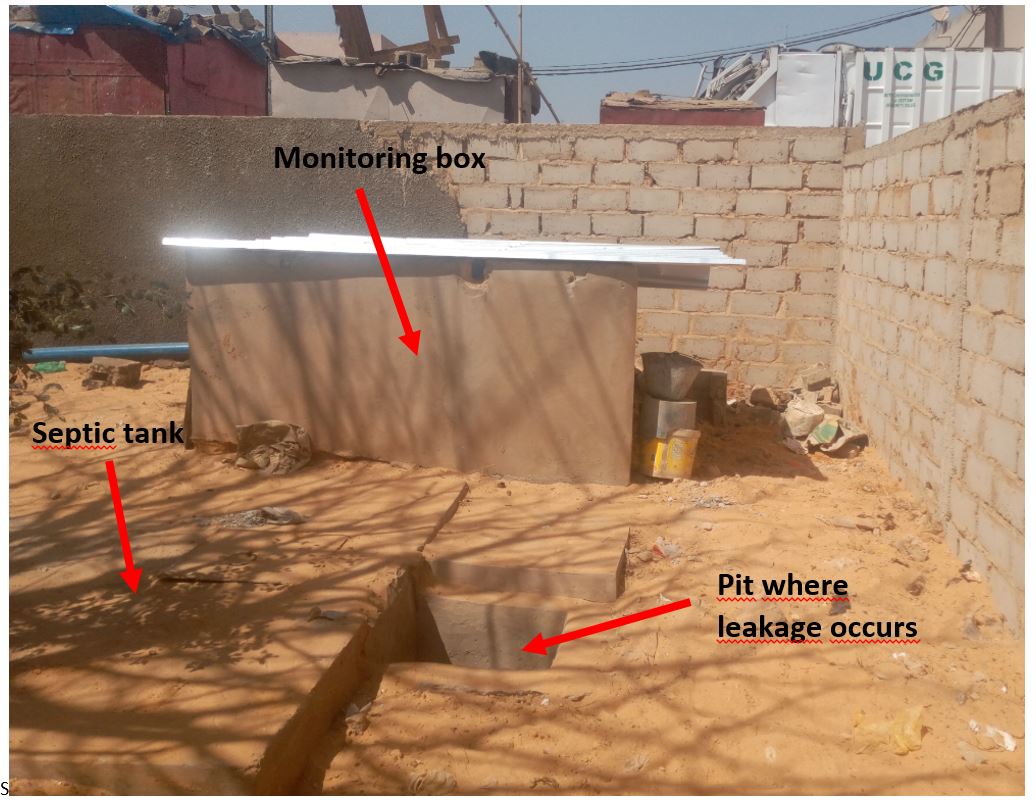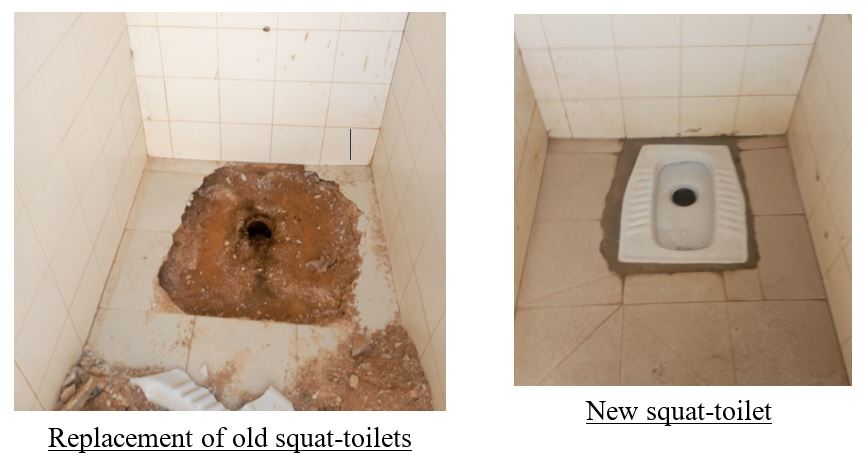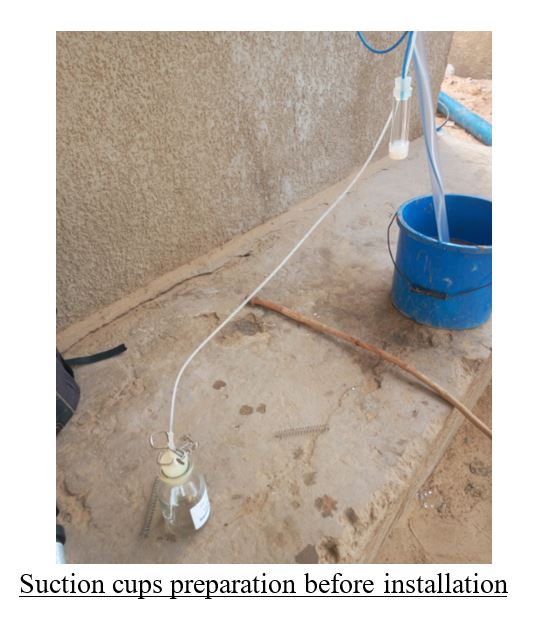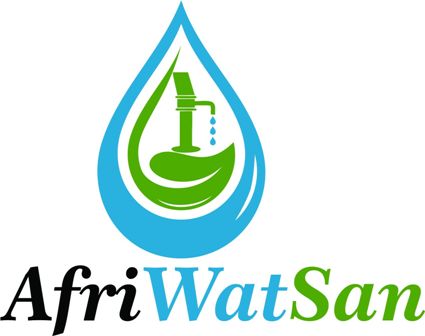In Dakar, field work under AfriWatSan continues.
To assess mechanisms of water and pollutant transfer from on-site sanitation systems to groundwater in the shallow aquifer of unconsolidated Quaternary sand, PhD student – Abdoulaye Pouye – has established a field laboratory in the unsaturated zone of a suburb of Dakar (Keur Massar). Here, on-site sanitation facilities (squat-toilets) have been replaced and a network of probes (electrical conductivity, temperature, soil moisture) and suction cups (to sample interstitial water) have been installed and tests have been carried out to develop a baseline of measurements before use of squat toilets resumes after the COVID19 pandemic; observations began on 20th April 2020.

The experimental site was constructed in a primary school (EPP Parcelles assainies unité 3). Monitoring devices have been installed close to a leaky septic tank. The purpose of this laboratory is to monitor the infiltration of aqueous faecal effluents from this on-site sanitation system through the unsaturated zone to shallow groundwater. Additionally, 3 nested piezometers ranging from 5 to 15 m in depth were installed in the shallow aquifer adjacent to this unsaturated zone laboratory.


The observations anticipated from this laboratory are expected to provide valuable information to resolve the mechanisms of water flow and faecal contaminant transport (e.g. nitrates, faecal bacteria) through the unsaturated zone and the impact of on-site sanitation systems on groundwater quality. As the school’s toilets were damaged and had clogged pipes, toilets were replaced and pipes clean to facilitate the evacuation of faecal effluent.
As classes at the primary school are expected to resume on 2nd June 2020, we can now observe what happens!
